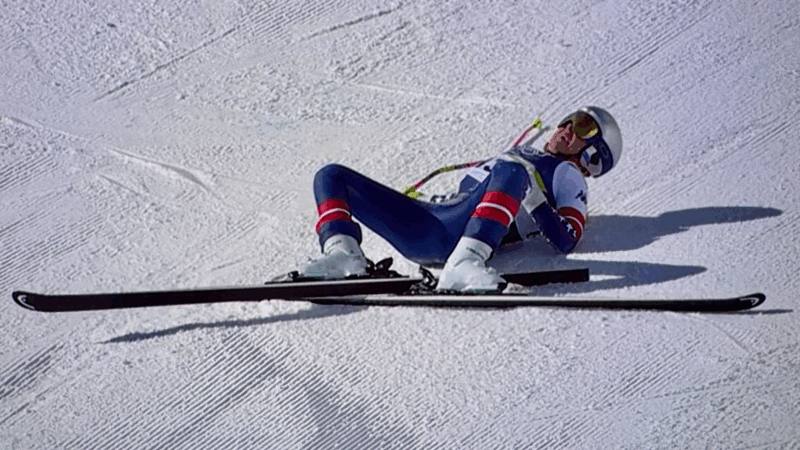What’s the deal with electrolyte drinks — do you need them to stay hydrated?
A classic 20-ounce bottle of lemon-lime Gatorade contains nearly one-eighth teaspoons of salt and 80 milligrams of potassium — electrolytes “to help replace what you sweat out,” the product’s ads say.
Powerade, another top sports drink brand with flavors like Peach Pucker and Grape Shocker, boasts “50% more electrolytes” than Gatorade.
U.S. consumers spend more than $10 billion a year on sports drinks, according to Beverage Industry, a trade publication. That doesn’t include electrolyte powders, foil-packed sticks from brands such as Liquid I.V. and Prime that people are swishing into their water bottles all summer.
The category has expanded well beyond its athlete niche into wellness products for daily living, industry analysts say. And now scores of online influencers promote the products, making big claims about their benefits.
But what are electrolytes, and do you need these pricey drink enhancers? We asked doctors and sports nutrition researchers to weigh in.
The claim
Drinking sports drinks with electrolytes is crucial to replenish micronutrients you lose in your sweat.
The evidence
It’s true that you lose electrolytes in your sweat.
Sweat is mostly water and salt, with additional minerals like potassium and magnesium, and small quantities of glucose, ethanol, hormones and other bodily compounds.
These minerals are electrolytes, which help your cells maintain equilibrium and communicate with one another.
But medical experts and sports scientists who spoke with NPR say: Don’t fall for the marketing. Unless you’re sweating heavily for a long time, or losing water rapidly due to illness, you don’t need extra electrolyte supplements.
Drinking water and eating a varied diet including fruits and vegetables will suffice for most people, they say.
Electrolytes are considered micronutrients because “your body requires them in very small amounts,” says Tamara Hew-Butler, a sports scientist who recently retired as associate professor of exercise and sports studies at Wayne State University.
And while they are regularly secreted in sweat, saliva and other bodily liquids, “if you eat a decent diet, you’re going to get all of the electrolytes that are required to function,” Hew-Butler says.
And more: “In the Western diet, we take in three times the amount of sodium we actually require.”
Further, your body adapts to maintain the electrolyte levels it needs.
Take salt, for instance, which the kidneys help regulate: If you’ve lost a lot of salt, “a hormone will go up, allowing sodium to exit the kidney and go back into the bloodstream,” Hew-Butler explains.
“But if you have excess sodium — like if you went to the bar and munched on peanuts and chips — the hormone goes down, and the channels that reabsorb sodium are closed, so that all the sodium you just ate gets excreted in your urine,” she says.
Calcium and magnesium, stored in your bones, can also be “liberated in times of need” and turned back into functional electrolytes your body can use, Hew-Butler says.
Urine regularly contains electrolytes — and if they’re coming out in your pee, it’s because your body has more than it needs, she says.
The nuance
It’s true that a lot of us are walking around “at some level of dehydration,” says Dr. Kory Taylor, an emergency medicine physician based in the Atlanta metro area who has a background in exercise science. During a busy day, “it’s so easy to push water to the side,” he says.
The good news is, the human body can perform well for hours, even when it’s temporarily dehydrated, says Asher Rosinger, an associate professor and director of the Water, Health, and Nutrition Lab at Penn State University. It was an evolutionary advantage, he says, “to not be so attached to water sources, so you could go out and forage.”
If you’re getting dehydrated, signs include getting thirsty, tired and cranky, a dry mouth, a headache, or feeling out of it.
“You might feel your heart rate beat a little faster when you’re climbing the stairs,” Taylor says. That’s because dehydration decreases the amount of blood in circulation.
Most anything that contains liquid will help rehydrate you, Rosinger says, starting with “good old-fashioned, plain water,” as well as milk, soup, tea or water-laden foods.
Still, sports drinks and electrolyte powders can be a useful tool in certain situations.
Haley Wilson, a sports dietitian at the University of Kansas Health System, works with student athletes who sometimes don’t eat enough for how active they are. She appreciates the convenience of sports drinks to help replenish liquid, electrolytes and carbs, especially for those who are actively working up a sweat for more than an hour.
Rosinger, who studies hydration practices globally, agrees that those “who are running a lot or just sweating a ton in the sun” may need to replace those electrolytes promptly. Though it is just one of many ways to get them back, a sports drink can be handy in those cases.
In cases of extreme medical dehydration, replenishing electrolytes can be critical, he notes. Oral rehydration solutions, which help correct electrolyte imbalances, “were one of the biggest achievements in public health to treat and deal with diarrheal diseases, and they’ve saved millions of lives around the world,” Rosinger says.
The bottom line
If you eat a somewhat balanced diet and you’re not an elite athlete or working all day in the sun, you’re most likely getting all the electrolytes you need — and more — from food. And you can skip the sports drinks.
“From my perspective, physiologically, it’s not going to make you exercise better or increase your performance or make you recover faster,” Hew-Butler says.
But if you like the taste of them, it’s fine to use them a couple of times a day, she says. They won’t hurt you, and it might encourage you to drink more.
Lindsey Vonn says she suffered ‘complex tibia fracture’ in her Olympic downhill crash
The 41-year-old star said her torn ACL was not a factor in her crash. "While yesterday did not end the way I had hoped, and despite the intense physical pain it caused, I have no regrets," she wrote.
Guerilla Toss embrace the ‘weird’ on new album
On You're Weird Now, the band leans into difference with help from producer Stephen Malkmus.
Nancy Guthrie search enters its second week as a purported deadline looms
"This is very valuable to us, and we will pay," Savannah Guthrie said in a new video message, seeking to communicate with people who say they're holding her mother.
Immigration courts fast-track hearings for Somali asylum claims
Their lawyers fear the notices are merely the first step toward the removal without due process of Somali asylum applicants in the country.
Ilia Malinin’s Olympic backflip made history. But he’s not the first to do it
U.S. figure skating phenom Ilia Malinin did a backflip in his Olympic debut, and another the next day. The controversial move was banned from competition for decades until 2024.
‘Dizzy’ author recounts a decade of being marooned by chronic illness
Rachel Weaver worked for the Forest Service in Alaska where she scaled towering trees to study nature. But in 2006, she woke up and felt like she was being spun in a hurricane. Her memoir is Dizzy.






